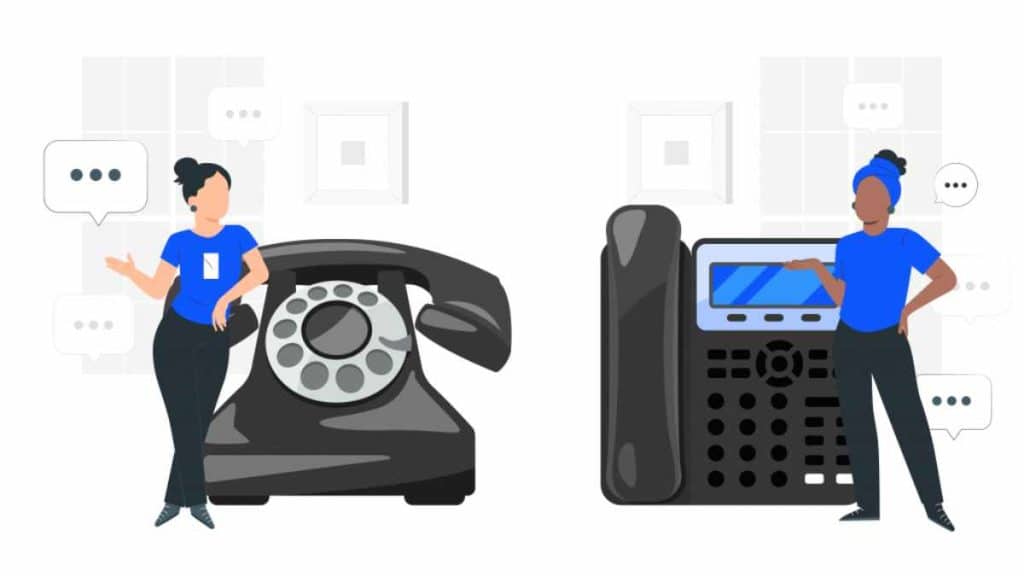In the era of digitization, business communication tools have evolved rapidly. With technological advancement, the question is no longer whether to upgrade but what to upgrade. One of the main debates in the realm of business communication today is VoIP vs. traditional phone systems. To make the right choice for your organization, it’s crucial to have a comprehensive understanding of both and how they integrate with your IT infrastructure.
Table of Contents
Understanding Traditional Phone Systems
Traditional phone systems, often referred to as Public Switched Telephone Network (PSTN) or landlines, have been the backbone of business communication for over a century. They work through circuit switching, with copper lines connecting calls. Their longevity in the market speaks to their reliability. However, they often require a substantial IT infrastructure, including physical hardware and lines. This might not be a concern for businesses with an established setup, but for those looking to scale or move, this can be cumbersome.
What is VoIP?
VoIP, which stands for Voice Over Internet Protocol, converts voice signals into digital data, transmitting it over the Internet. This method of communication has seen a massive rise in the past decade. It offers flexibility, scalability, and often reduced costs compared to traditional systems. However, as VoIP operates over the Internet, it’s crucial to have strong IT support services to handle potential issues and ensure seamless operation.
Comparing Costs
When considering costs, VoIP systems often come out ahead. Traditional phone systems can involve hefty upfront investments in infrastructure, not to mention maintenance costs and the potential need for specialized IT management. On the other hand, VoIP requires minimal initial investment, and many service providers offer competitive monthly rates. However, additional costs may exist to enhance internet bandwidth or for specific IT support services.
Flexibility and Scalability
In today’s fast-paced business environment, flexibility and scalability are paramount. VoIP systems shine in this regard. They allow businesses to easily add or remove lines, integrate with other digital tools, and even allow employees to take calls from different devices or locations. Traditional systems may not offer the same level of adaptability without incurring significant costs or requiring modifications to the existing IT infrastructure.
Quality and Reliability
Historically, traditional phone systems had an edge when it came to call quality. However, with advancements in technology, VoIP systems have greatly improved in this domain. Nevertheless, VoIP calls’ quality can depend on the internet connection. It’s crucial to have IT management in place to ensure consistent and high-speed internet connectivity. While generally reliable, traditional systems can be prone to outages, especially during extreme weather conditions.
Integration with Modern Tools
VoIP systems seamlessly integrate with many modern business tools, enhancing productivity. Features like voicemail-to-email, call analytics, and CRM integration are straightforward with VoIP. Traditional phone systems might not offer these features, or they may come at an additional cost.
Final Thoughts
The debate between VoIP and traditional phone systems is less about which is superior and more about which is right for your business. VoIP is for you if you prioritize flexibility, scalability, and integration with modern tools at a potentially lower cost.
Choosing the right communication system is a crucial decision. It can influence your operational efficiency, customer satisfaction, and bottom line. For expert guidance on setting up and managing your communication systems, consider reaching out to ArgoCTS. They offer specialized services to ensure your business is always at the forefront of communication technology.
